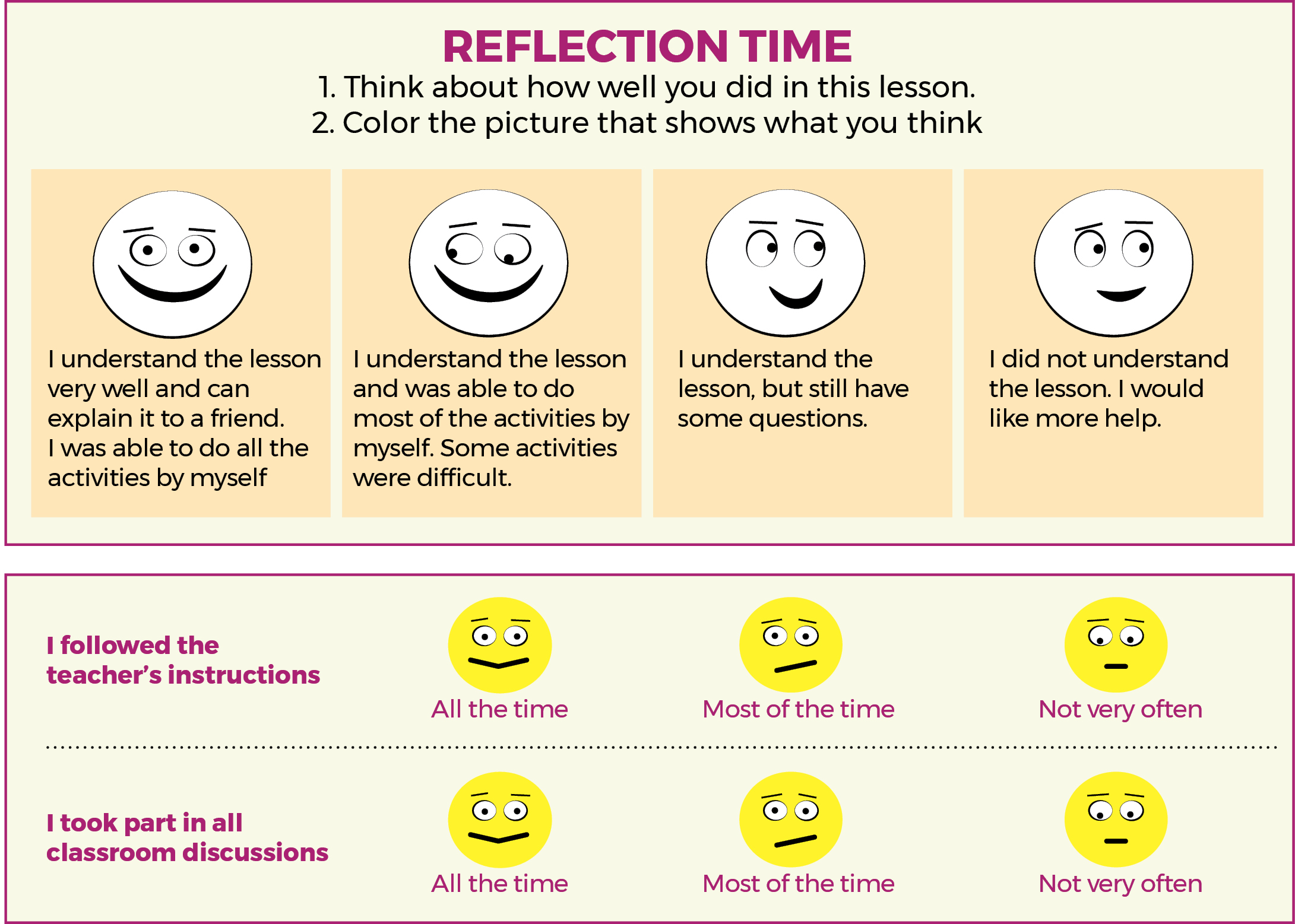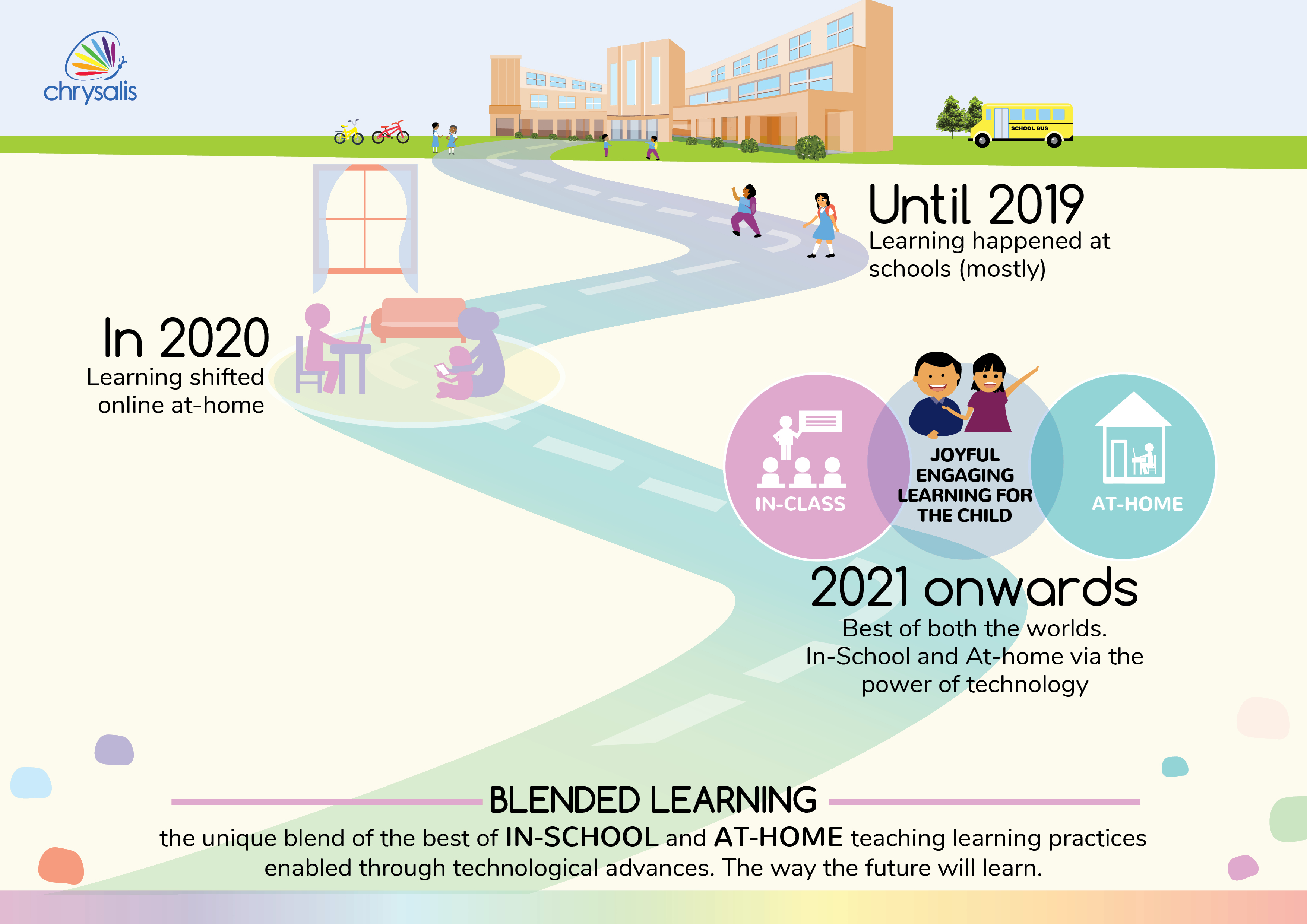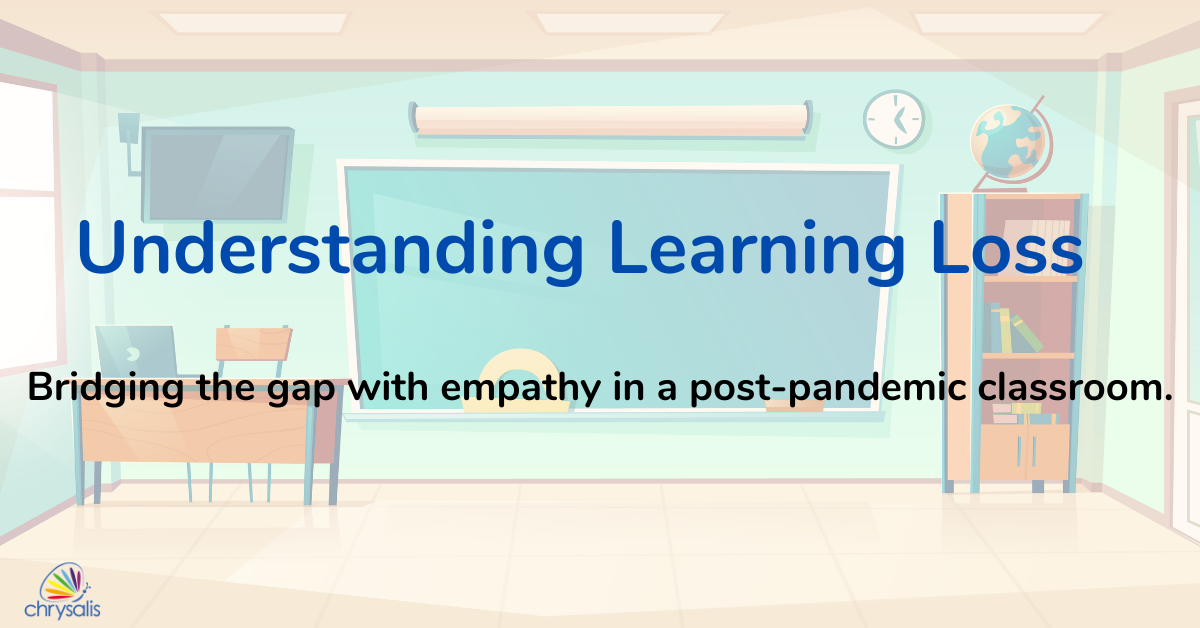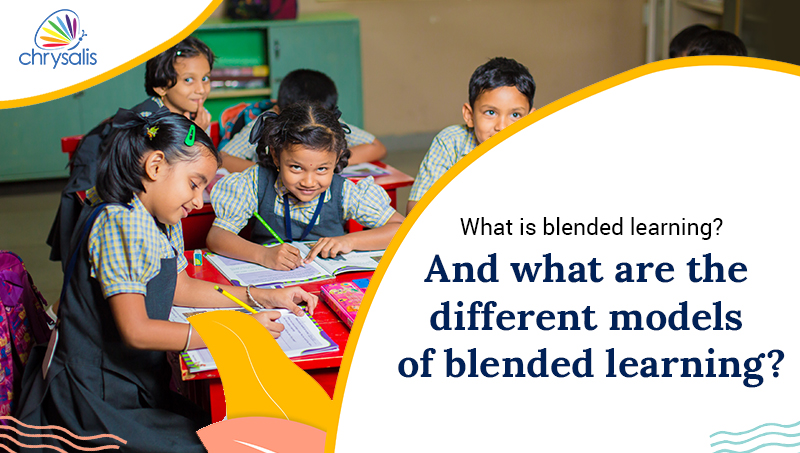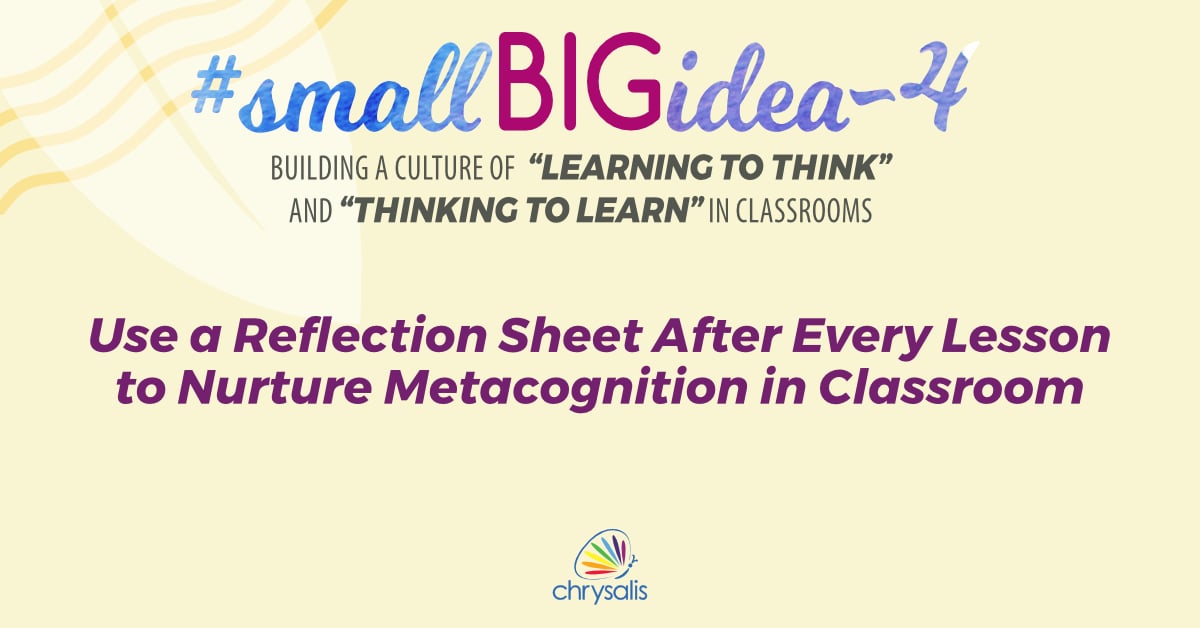
In John Dewey’s own words “We learn more from reflecting on our experiences than from the actual experiences themselves”. Metacognition or reflecting on one’s own thinking plays a critical role in the child growing up to be an independent thinker, a good problem solver and a lifelong learner. Hence, it is important that the learning experiences in a classroom aid in nurturing metacognition in children.
Metacognition is developed in two ways within a lesson. Immediate reflection time can be given for some activities and, after selected lessons, children could be asked to complete a journal page. The journal can have appropriate questions that guide the child to build metacognitive knowledge and skills. Similar to procedural skills and social and emotional skills. The development of metacognition in this way also fosters self-efficacy and a growth mindset.
How can this practice be part of our daily tasks in classrooms?
Presenting...#smallBIGidea - 4
Use a Reflection Sheet After Every Lesson
to Nurture Metacognition in Every Child
| S.NO | WHAT CAN YOU DO: |
| 1 | Take a print out and make photocopies of the reflection time questions on below. (click on the image to download it) |
| 2 | Allot 10 minutes for REFLECTION QUESTIONS after every lesson in every subject. |
| 3 | Ask the children to reflect/think on their experience after a lesson. |
| 4 | Encourage and support them to give their honest thoughts on their experience. |
| 5 | Applaud everyone for having taken part in ‘Reflection Time’ |
| 6 | Instruct the teachers to use the reflection time responses to guide her next lesson plan. |
| 7 | Ask the children to maintain a “Reflection Journal”, a file, where they could add their reflection sheets after every lesson. At the end of the year, this becomes a visual evidence of their learning journey. |
CLICK ON THE BELOW IMAGE TO DOWNLOAD IT
Pedagogic “Why” for this #SmallBIGidea
Reflection questions creates a space for the child to think about his/her own thinking. It helps them understand how they learnt what they learnt, how and why behind a learning experience and what they could do in the future to make this experience more fruitful. This is one of the most recommended pedagogic tools for building metacognition.
Research says that:
- Children who use metacognitive abilities, learn and remember more than others and diagnose problems and correct them, discover the best ways to apply what they have learned.
- Metacognition is a teachable skill that is central to other skills sets such as problem solv-ing, decision making, and critical thinking.*
- Metacognitive pedagogy is not only important for a child’s cognition but also to foster their thinking in social and emotional domains. **
Supporting research papers:
- Development and Evaluation of Metacognition in Early Childhood Education, Chatzipanteli, Athanasia; Grammatikopoulos, Vasilis; Gregoriadis, Athanasios
- Early Child Development and Care, v184 n8 p1223-1232 2014
- * Promoting general metacognitive awareness - Schraw, G. Instructional Science (1998) 26: 113. https://doi.org/10.1023/A:1003044231033
- **https://read.oecd-ilibrary.org/education/critical-maths-for-innovative-societies/the-effects-of-metacognitive-pedagogies-on-social-and-emotional-skills_9789264223561-10-en
What are #smallBIGideas?
Presenting, some #SmallBigIdeas that can transform Formative Education in your schools. They are seemingly small but definitely impactful. Because, all you would need is an open mind and a willing heart.
What: One #smallBIGidea a week - just 1-minute reading time.
How: #smallBIGidea sent to your email ID with link to a one-page document that explains the pedagogy and the steps to implement it.
It is these simple ideas that can go on to bring a radical transformation. In your school. For the child.


